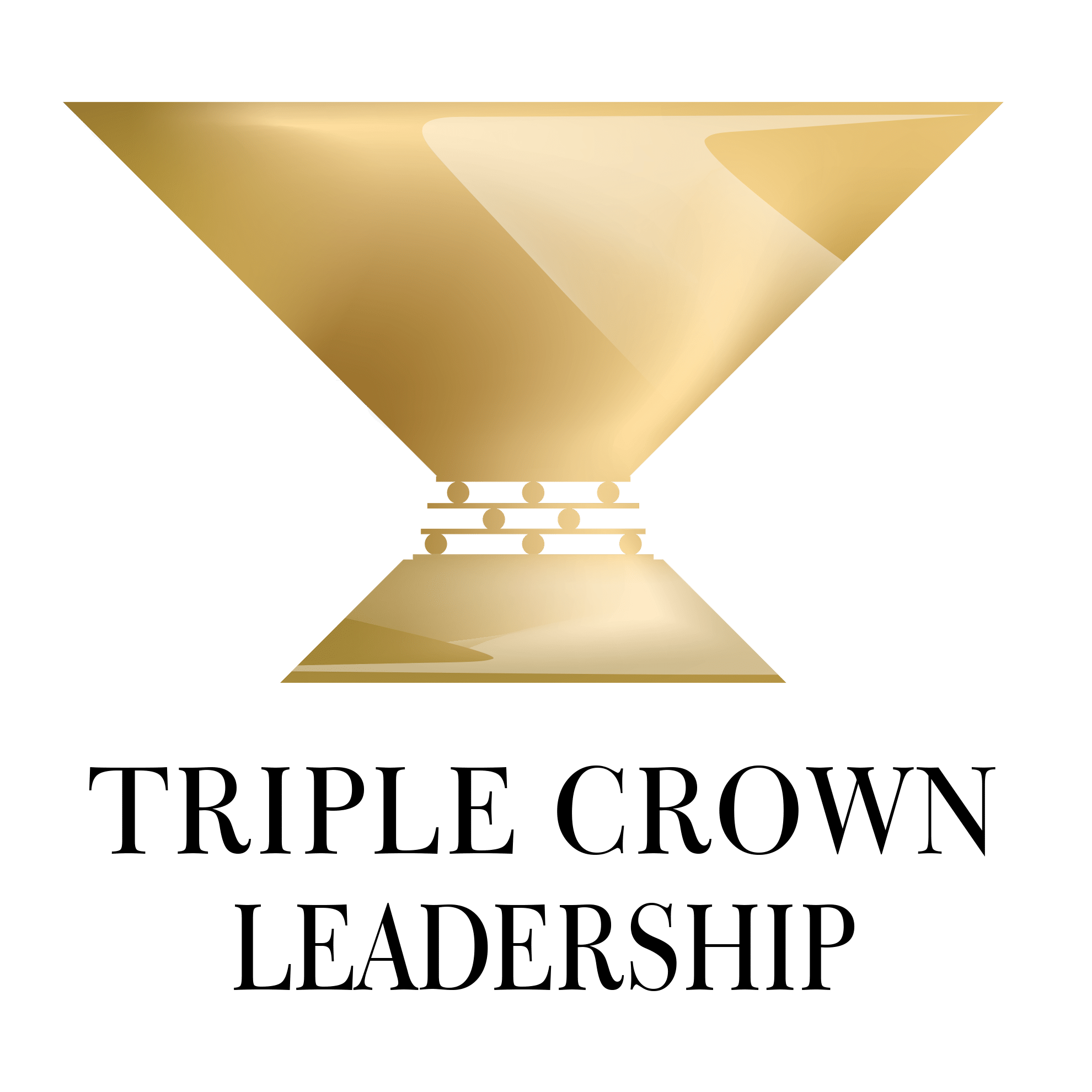What are the signs of ethical leadership in action—the things that ethical leaders do that others don’t?
Ethical leaders pay attention to how their organizations and teams achieve their results.
We know from research that honesty is one of the top things people look for in their leaders. And that whether managers are observed to behave ethically or unethically makes an enormous difference on workers. When their managers are observed to behave unethically, workers report feeling much more pressure to behave unethically at work, are much more likely to observe unethical conduct in the workplace, and are much less likely to report misconduct.
In a nutshell, ethical leadership matters greatly.
Personal Practices of Ethical Leaders
Here are some key things you can do to become an ethical leader:
Commit to be ethical. Make a clear decision to do the right thing, even when it’s costly or hard. And hold yourself accountable to that decision.
“… progress is impossible without an explicit and firm commitment to ethical practices.”
-Bob and Gregg Vanourek, Triple Crown Leadership: Building Excellent, Ethical, and Enduring Organizations
Make ethical leadership not only a personal and organizational priority but also an imperative. Don’t compromise on the ethical imperative. Draw the line. (See our article, “Leadership and the Ethics Imperative.”)
Expect ethical challenges and dilemmas. Be ready for them. Recall that your ethical fortitude will be tested most under duress, such as in a crisis or under pressure from your board or colleagues.
“… it takes proactive leadership to instill and enforce ethical behavior in an organization.”
-Bob and Gregg Vanourek, Triple Crown Leadership: Building Excellent, Ethical, and Enduring Organizations
Define your personal core values and commit to upholding them. (Use our Personal Values Exercise.) According to author Dan Pink in his book, The Power of Regret, moral regrets “are the most individually painful” of all the types of regret.

Personal Values Exercise
Complete this exercise to identify your personal values. It will help you develop self-awareness, including clarity about what’s most important to you in life and work, and serve as a safe harbor for you to return to when things are tough.
Enlist a small group or small circle of trusted advisors for counsel. It’s folly to try to face this struggle on your own. Why? We’re all vulnerable to self-deception, in part because we’re so good at rationalizing questionable and problematic behavior.
“We are all flawed. Since we all make mistakes, we are wise to solicit help and input from others as sounding boards and accountability agents. Heated debates occur among reasonable people who can disagree on what is ethical.
Such debates can be healthy and help maintain the ethical imperative.”
-Bob and Gregg Vanourek, Triple Crown Leadership: Building Excellent, Ethical, and Enduring Organizations
Have places or practices of sanctuary for deep reflection. Perhaps runs in the park, walks in the forest, yoga, meditation, or prayer?
Be brave. Ethical behavior requires personal and moral courage. Commit to act on your values regardless of the difficulty or personal cost.
“Corporate integrity is about choosing ethical courage over convenient shortcuts, prioritizing what is right over what is profitable, and embodying the company’s core values in every action, not just in rhetoric.”
–Arpinder Singh, Global Markets and India Leader, EY Forensic & Integrity Services
Set an example by acting and leading ethically. That means upholding your commitments and defending the organization’s shared values when they’re threatened.
Communicate the importance of ethics clearly and frequently. According to the EY Global Integrity Report 2024, only 47% of management teams often communicate to their workers the importance of acting with integrity.
Be careful about what you commit to and promise. Recognize that your credibility is on the line. Never forget that your actions matter much more than your words.
Follow through on your commitments. When you do so, you build trust and credibility.
Admit mistakes. Be honest and straightforward. Admit what happened as well as your role in it (including possible neglect). Apologize sincerely. Develop, share, and implement a fix with all relevant team members and stakeholders.
Take full responsibility for mistakes and failures. Recall that “the buck stops here” for leaders.
Be transparent and communicate openly. People often sense when you’re hiding something. And they resent it.

Leadership Derailers Assessment
Take this assessment to identify what’s inhibiting your leadership effectiveness. It will help you develop self-awareness and identify ways to improve your leadership.
Avoid conflicts of interest (and their appearance). Don’t fall into the trap of self-dealing—when your business decisions benefit yourself rather than the organization. Avoid nepotism and favoritism when hiring or promoting people. Don’t accept gifts or bribes from vendors or clients.
Ask yourself and your colleagues often whether the organization and/or team you work for is a good one. Take appropriate action when there are shortcomings. (Note: This example comes from the CEO of DTE Energy.)
Evaluate ethical dilemmas from multiple perspectives. You can draw a parallel here from the world of finance. To evaluate the financial health of an organization, you can’t just look at the income statement. You also have to look at the balance sheet and cash flow statement. Each one reveals different things. And so it goes with ethical dilemmas. For example, you can boil several leading ethical frameworks down to a few piercing questions:
Consequence: How will this affect everyone involved?
Duty: What is required of you in this situation?
Virtue: What would you do at your best?
Work hard to prevent unethical decisions and organizational scandals. Be aware of the common factors across many ethical scandals:
- perceived anonymity
- absence of a sense of personal responsibility
- tacit approval or even encouragement of wrongdoing by authority figures
(Source: Raj Sisodia and Michael Gelb, The Healing Organization.)
Watch out for what Professor Kenneth Goodpaster calls the “three symptoms of ethical hazard”: fixation (unhealthy obsession with an aim or goal), rationalization (a defense mechanism in which you justify difficult or unacceptable feelings or actions with seemingly logical reasons and explanations), and detachment (disengaging from your values, humanity, empathy, or compassion). Goodpaster shows how you can address each of these in turn:
Move from fixation to perspective. See that your goals are part of a larger mission. Build in reflection time and a long-term view of the communities you’re a part of and your obligations.
Shift from rationalization to frankness. Bring radical honesty to discussions through piercing dialogue and healthy conflict with colleagues who recognize the value of vetting ethical issues. Work closely with people willing to raise their voices and “speak truth to power.”
“Most ethical letdowns occur because there is pain or discomfort involved with ethical behavior. People feel pressure or fear, and they rationalize unethical decisions to avoid pain. Often, the ethical path is the harder one; yet we have brains wired to rationalize behavior that protects us from pain and conflict and from standing out from the group.”
-Bob and Gregg Vanourek, Triple Crown Leadership: Building Excellent, Ethical, and Enduring Organizations
Move from detachment to engagement. Engage your heart as well as your head in major decisions. This comes in part from having total clarity about the shared purpose of the organization (beyond winning or maximizing profits)—and the shared values.

Leadership Derailers Assessment
Take this assessment to identify what’s inhibiting your leadership effectiveness. It will help you develop self-awareness and identify ways to improve your leadership.
Conclusion
Of course, personal practices are only one part of the equation when it comes to ethical leadership. In future articles, we’ll address some of the other important parts, including ethical decision-making; hiring, developing, and rewarding people; ethical rationalizations; and creating a culture of integrity.
“In business, trust and integrity are the pillars that uphold an organization’s reputation and build confidence. Ignoring ethical values isn’t just a lapse in judgment–it’s a gamble with an organization’s most valuable asset.”
–Andrew Gordon, Global Leader EY Forensic & Integrity Services
Tools for You
- Leadership Derailers Assessment to help you identify what’s inhibiting your leadership effectiveness
- Personal Values Exercise to help you determine and clarify what’s most important to you
- Alignment Scorecard to help you assess your organization’s level of alignment
Related Articles & Resources
- “How Ethical Leaders Approach Decision-Making”
- “17 Steps to a Thriving Ethical Culture”
- “Leadership and the Ethics Imperative”
- “3 Things Ethical Leaders Ask and Say”
- “Why Are We Talking about Ethics?”
- “How to Prioritize Ethics When Leading People”
- “The Ethical Challenges Faced by Leaders”
- “Are You Strong Enough to Be a ‘Voice of One’?”
- “The Importance of Trust in Leadership”
- “The Importance of Credibility in Leadership”
- “Ethical Decision-Making: Simple Tests”
- EY, “How Can Trust Survive without Integrity?” EY Global Integrity Report 2024, EY Forensic & Integrity Services
- Bob and Gregg Vanourek, Triple Crown Leadership: Building Excellent, Ethical, and Enduring Organizations

Postscript: Inspirations on Ethical Leadership
- “Ethical behavior is tested most under duress.” -Bob and Gregg Vanourek, Triple Crown Leadership: Building Excellent, Ethical, and Enduring Organizations
- “An ethical leader is someone who lives and dies for integrity. The ethical leader’s mantra is doing the right thing, even when it hurts.” –Heather R. Younger, author, founder, and CEO, Employee Fanatix
- “The obligation of accepting a position of power is to be, above all else, a good human being.” –Peter Block, Stewardship
- “In the absence of integrity, great leadership cannot exist, only egotistical pretenses of it. Integrity, emotional maturity, and great leadership are inseparable.” -Ed Morler, author
- “Ultimately, an organization cannot be excellent without being ethical.” -Bob and Gregg Vanourek, Triple Crown Leadership: Building Excellent, Ethical, and Enduring Organizations
- “In every survey we’ve conducted, honesty is selected more often than any other leadership characteristic. Overall, it emerges as the single most important factor in the leader constituent relationship…. First and foremost, people want a leader who is honest.” –James Kouzes and Barry Posner, The Leadership Challenge
- “There is something deep within us that responds to those who level with us.” –Susan Scott, Fierce Conversations
- “There is no such thing as a minor lapse of integrity.” –Tom Peters, leadership author and consultant
- “Ethical fortitude relies heavily on courage to face adversity and social pressure.” -Bob and Gregg Vanourek, Triple Crown Leadership: Building Excellent, Ethical, and Enduring Organizations
- “I… rationalized that what I was doing was OK, that it wasn’t going to hurt anybody.” -Bernie Madoff, financier and financial criminal

Triple Crown Leadership Newsletter
Join our community. Sign up now and get our monthly inspirations (new articles, announcements, opportunities, resources, and more). Welcome!
+++++++++++++++++++++++
Gregg Vanourek is a writer, teacher, and TEDx speaker on leadership and personal development. He is co-author of three books, including Triple Crown Leadership: Building Excellent, Ethical, and Enduring Organizations (a winner of the International Book Awards written with his father, Bob Vanourek) and LIFE Entrepreneurs (a manifesto for living with purpose and passion, written with Christopher Gergen). Check out his Leadership Derailers Assessment or join his rapidly growing community. If you found value in this, please forward it to a friend. Every little bit helps!


